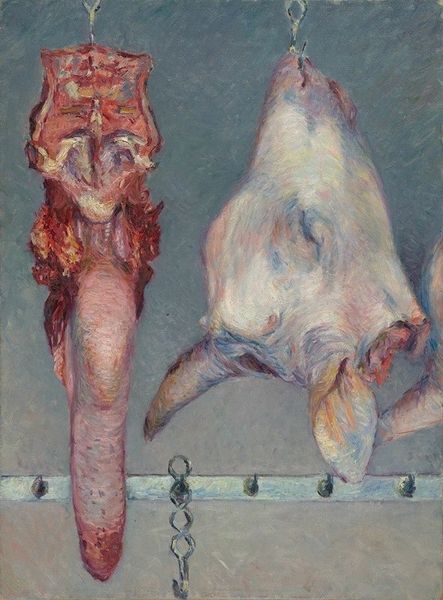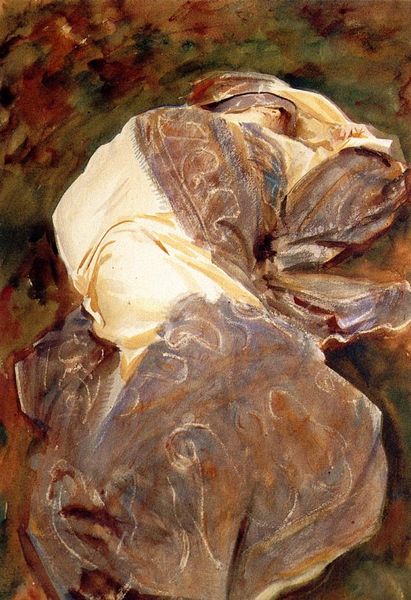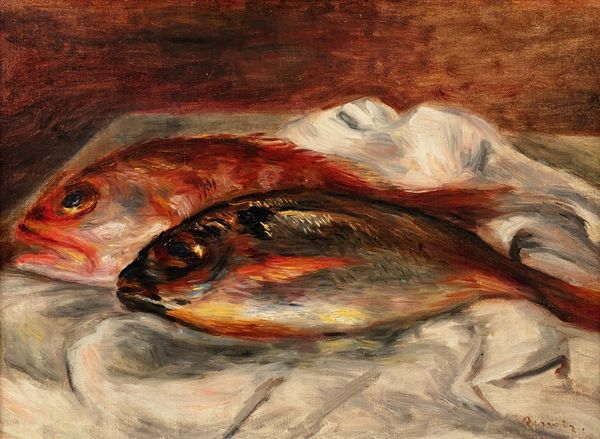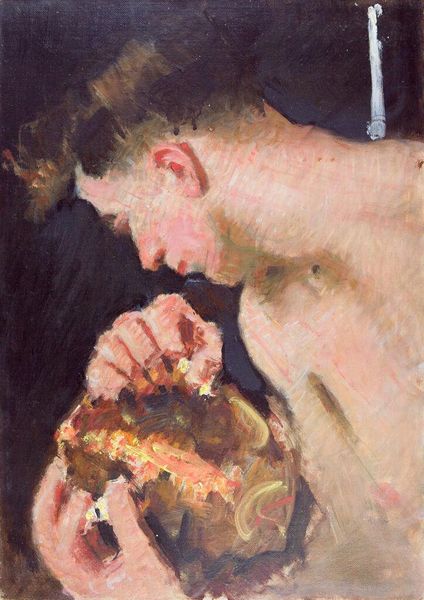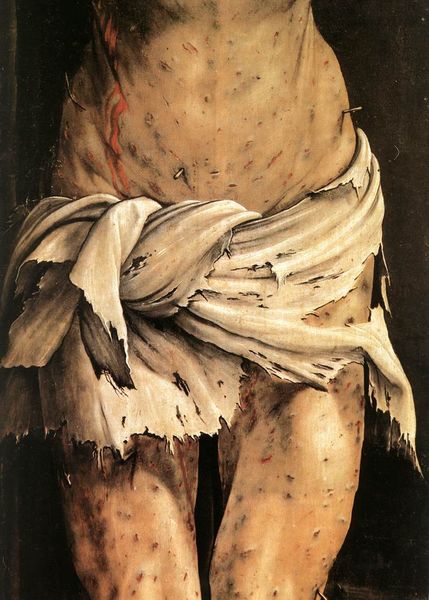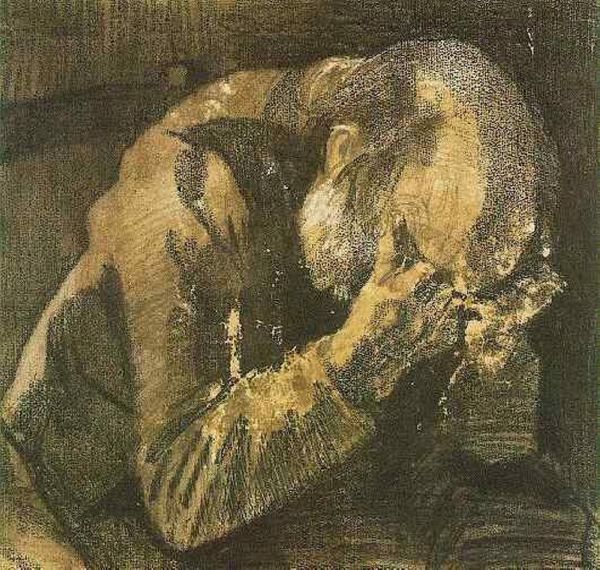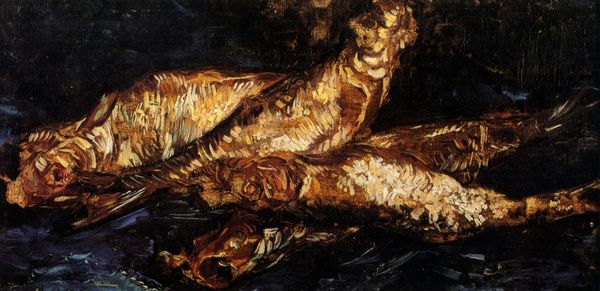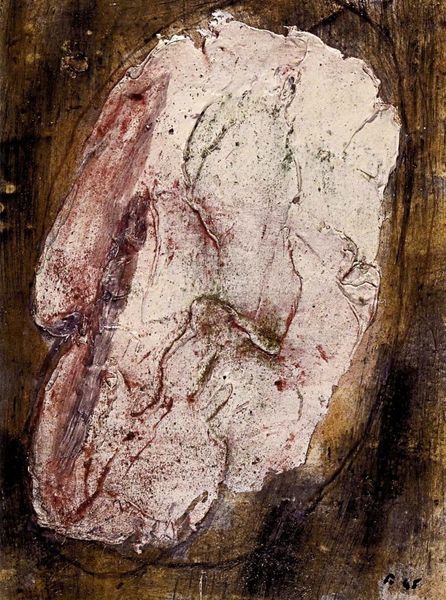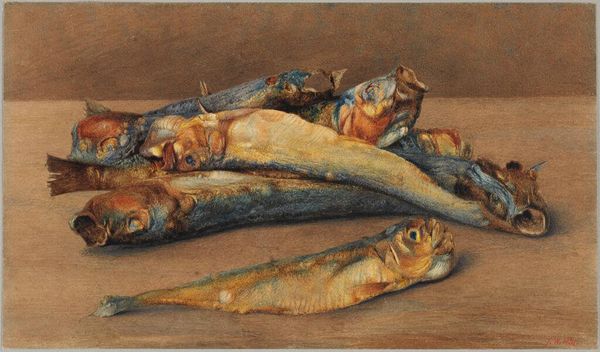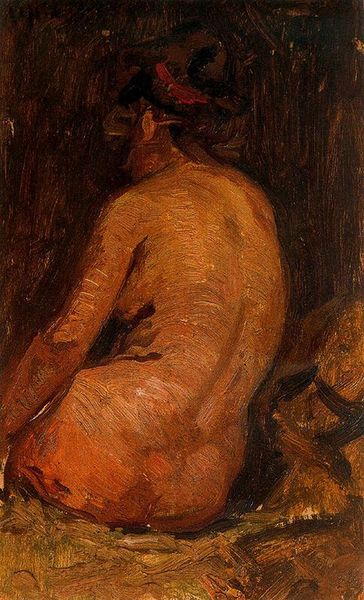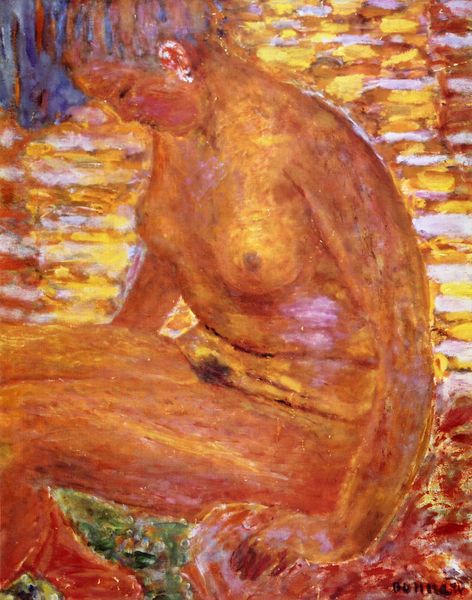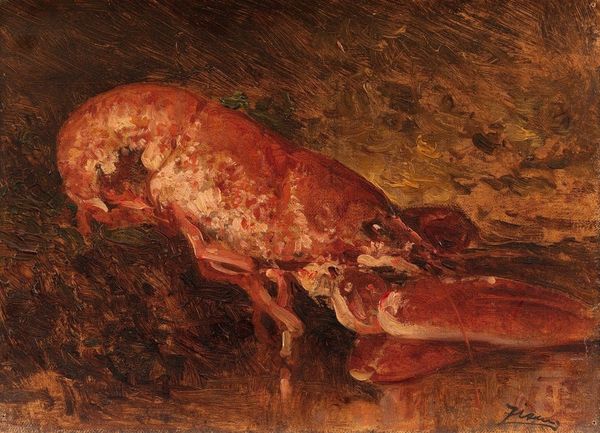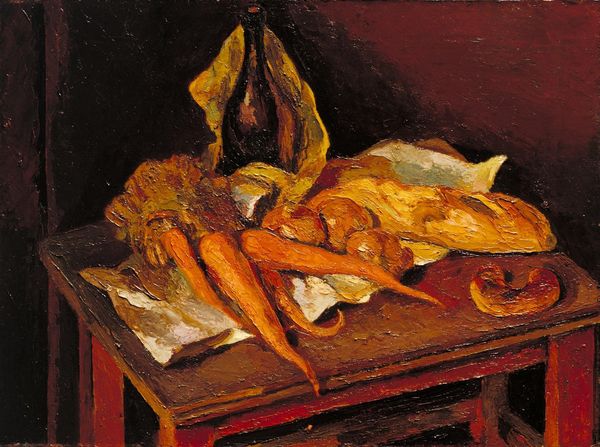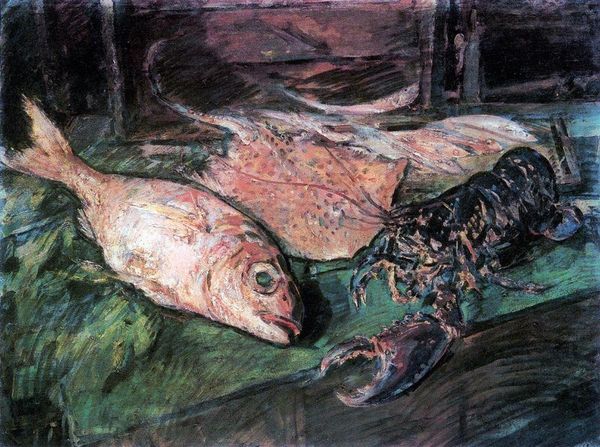
oil-paint
#
oil-paint
#
oil painting
#
romanticism
#
animal drawing portrait
#
genre-painting
#
realism
Dimensions: 31.8 x 44.1 cm
Copyright: Public domain
Curator: James Ward's "Beef," executed in 1815 using oil paint, hangs before us. The work depicts two butchered sides of beef suspended from hooks against a dark, somber background. Quite striking, isn't it? Editor: It certainly is, Curator. My immediate reaction is visceral; there's a raw, almost aggressive texture to the rendering of the flesh. I’m interested in how this sits within the romanticism period this is also labelled with; quite an atypical depiction to my mind. Curator: Agreed. The dynamism lies primarily in the contrasts. The warm, fleshy tones of the beef sharply contrast the cool, shadowy browns that envelop them. See how Ward manipulates the impasto—thickly applied paint—to capture the uneven surface and form? The brushwork lends a tactile quality. There’s almost a sculpted feeling here, wouldn't you agree? Editor: Indeed, the materiality of the paint mirrors the physicality of the subject matter. One can practically smell the iron from the hooks, feel the grease. It calls into question notions of refinement. Why depict something so brutally carnal? How was such an image received by his audience? Who were the butchers and their public consumers in the early 19th Century who would have commissioned and interacted with Ward's artwork? Curator: Well, there's undeniable drama at play, wouldn't you say? The cascading folds of the meat and the exposed bone speak to both vulnerability and power, in a way only attainable during that early epoch of Realism, don't you agree? The tension is built in its contrast between grandeur and mortality... It provokes profound, unsettling reflection on what it means to consume meat. Editor: I understand, but to me, it's also about the craft and economics underpinning this display. How has our attitude to mass consumption, processing, and marketing of meats evolved over the last two centuries? Was the painting a commodity celebrating successful and resourceful merchants in the city? A reflection on meat production and its material consequences on the British class systems? Curator: Well, viewing it simply as that undersells the picture, I feel. A study of consumption in Romanticism doesn't do it justice. Editor: Perhaps so, Curator, but delving into that production and context adds layers to my reading that the pure formalism just can't unlock alone! Curator: Indeed, a perspective change such as your own makes it much richer, I agree! Editor: Absolutely Curator; what a feast of insights!
Comments
No comments
Be the first to comment and join the conversation on the ultimate creative platform.
